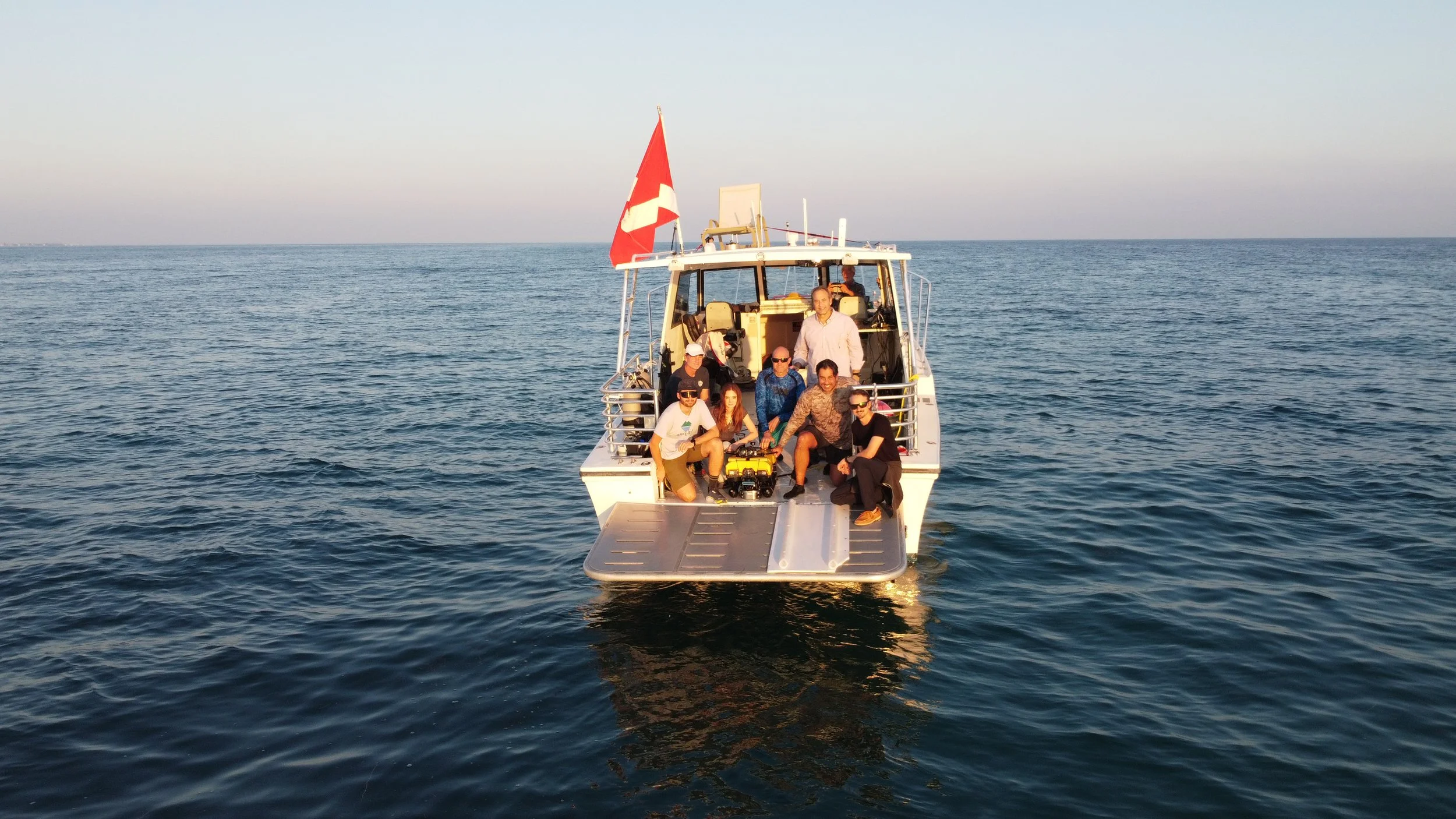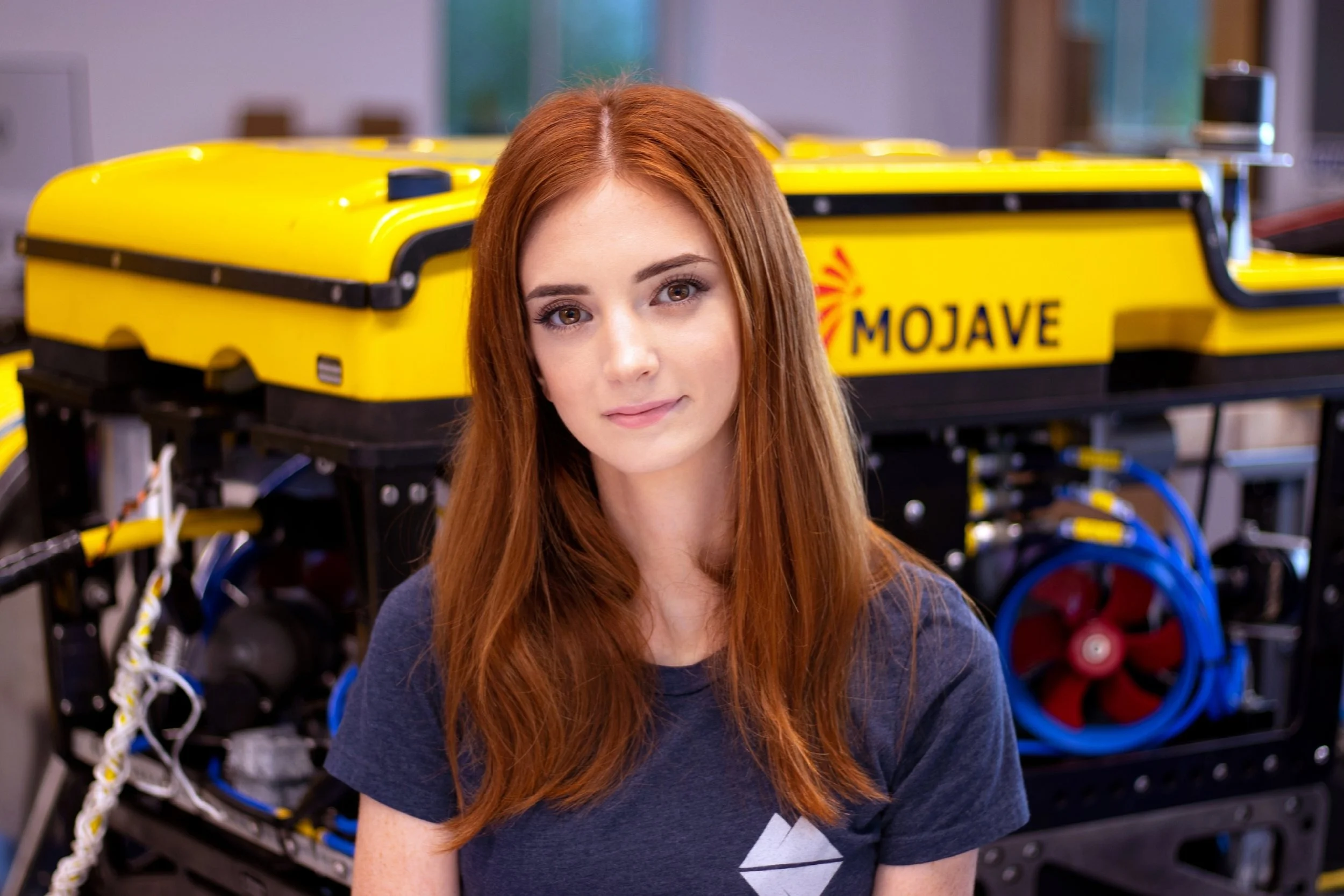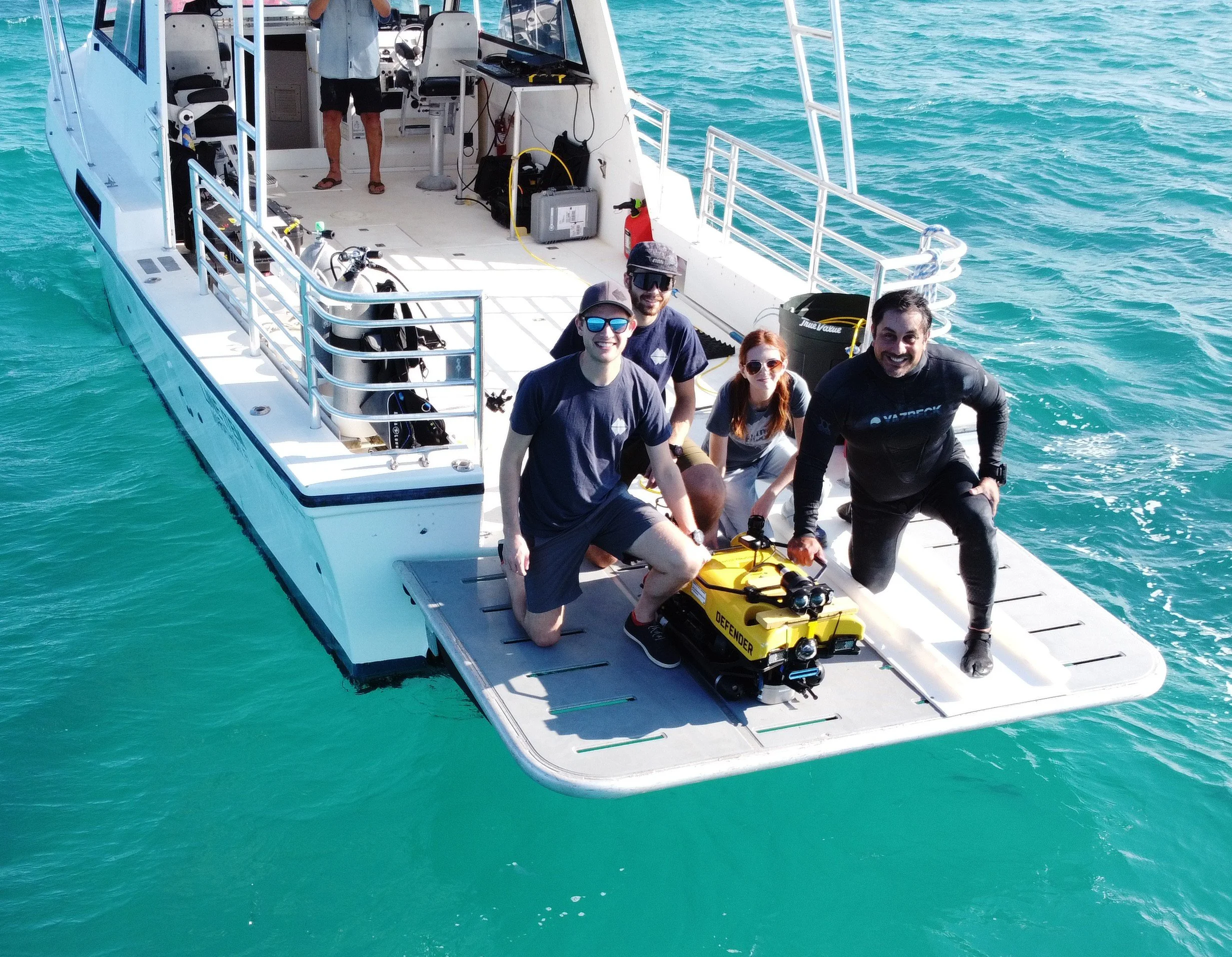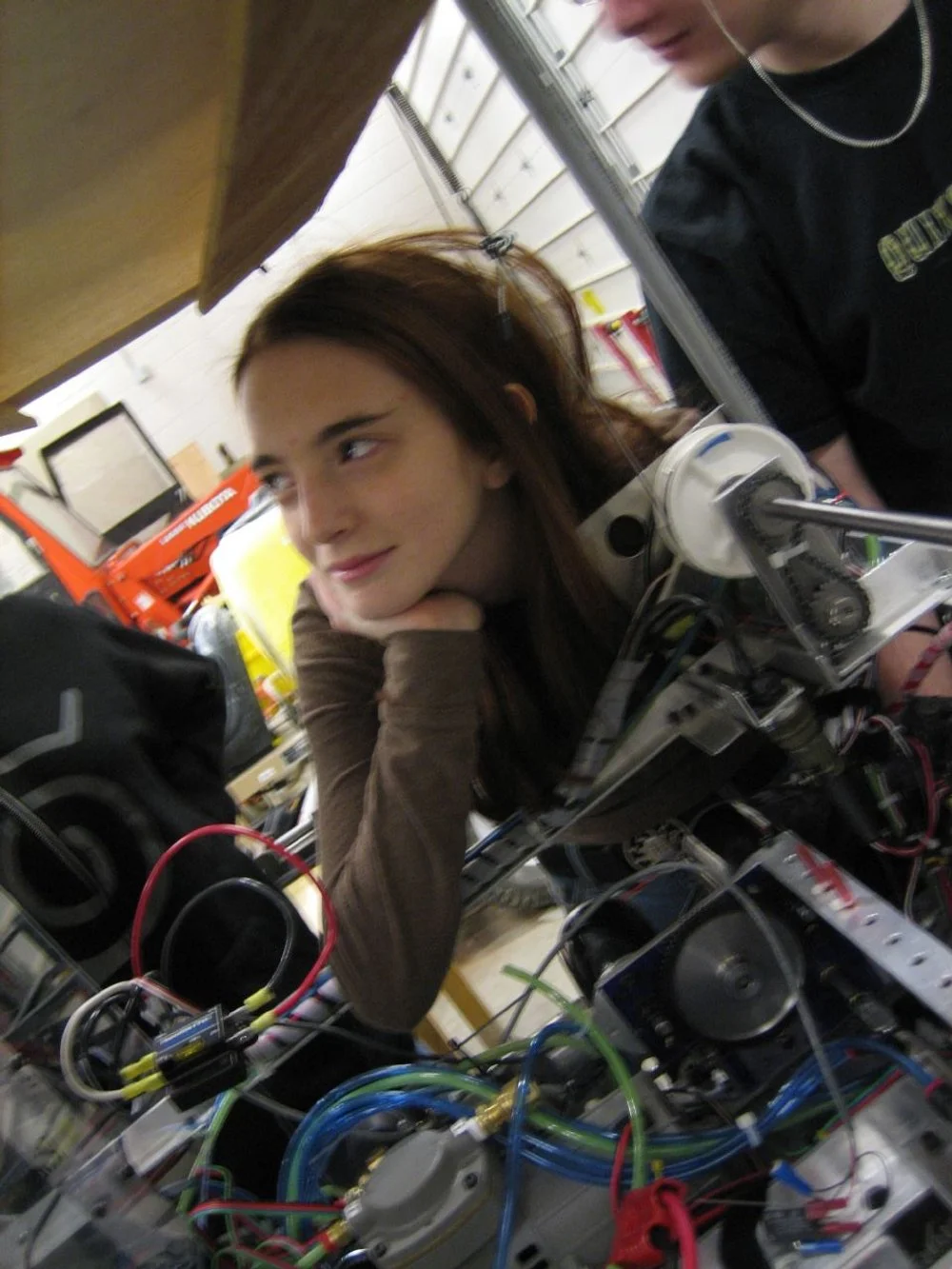Meet Jaine Perotti
Meet Jaine Perotti, a FIRST Robotics Competition alumna and passionate Robotics Engineer at Vermont-based subsea robotics company Greensea IQ. Specializing in navigation and mapping software for ocean robots, Jaine's journey into engineering began as a high school student with no prior robotics experience. Join her as she shares how these formative experiences shaped her career and led her to innovate technologies that enhance safety and sustainability in underwater operations.
My name is Jaine Perotti, and I'm an ocean Robotics Engineer at a local company called Greensea IQ, where I design and write software for various ocean robots. Our products include robots for explosive ordnance disposal, cleaning ship hulls, and environmental surveying. Greensea also supports the scientific research community with custom software for robots that help advance our knowledge of the world’s oceans. It is a challenging job, but also a ton of fun! I’ve had the privilege of writing software that does really cool things—like finding and mapping underwater mines, and helping a ship-cleaning robot navigate around ship hulls. I’ve also had the chance to travel to new places and collaborate with inspiring people. When I heard that the 2024-2025 FIRST Robotics game challenges were ocean robotics-inspired, I was absolutely thrilled! I hope that the student experiences this past year inspire them to learn more about this exciting career path. If you’re curious about ocean robotics or the career itself, I invite you to contact me and ask any questions you might have!
However, before I became a robotics engineer, I was a student in the FIRST Robotics Competition (Team 716, The Who’sCTEKS from Falls Village, CT). Before I joined my high school’s FRC team, I loved science but had no idea what engineering was. I thought an engineer was “the person that drives the train” or something, which is pretty funny! I couldn’t envision an engineering career, let alone see myself in it. When a friend of mine asked me to join the team with her, I was a little nervous—but I saw it as a chance to learn practical skills, like using tools. Growing up, I wasn't asked to help work on cars or fix computers with family—not because they thought girls shouldn't, but because it never occurred to them that I might actually enjoy it!
My very first robotics meeting was intimidating, but also intellectually and visually stimulating. As my teammates showed me around, I was captivated by the colorful spaghetti of wires, the flashing lights, and the array of tubing, chains, and sprockets of the previous years’ robots. I felt drawn to unravel the mystery of what I saw before me.
However, my first months on the team were not easy. Although I wasn't the only girl, I quickly found out that there was a social pecking order that put freshmen on the bottom and upperclassmen at the top. I was already incredibly shy—at that age, I dreaded speaking up in front of other people! I felt insecure not knowing basic electronics, programming, or mechanics, and I feared making mistakes in front of others.
I vividly remember my first brainstorming session and kickoff event. I was nervous and unsure of what contribution I could make. The brand-new FRC game that year was called Stack Attack. It involved stacking plastic storage boxes and battling for dominance over a ramp in the middle of the field. The more boxes your robot could stack, the more your score would be multiplied. The team began brainstorming ideas for manipulator arms. Most of the ideas consisted of heavy, complicated grabbing mechanisms to stack the boxes. But I thought of a simpler solution: what if we just picked up the box by the bottom edge of the lid? It could use a simple hook that would be moved up and down a chain-drive elevator. Nervously, I raised my hand and asked if I could share my idea on the blackboard. To my surprise, the team embraced it. It even earned a nickname—the “Jaine Chain.”
That moment was truly the first time that I recognized that I might have an aptitude for engineering. I had found a place of belonging on the team. This experience taught me and my teammates that sometimes, inexperience can actually be an asset in engineering. While not knowing the state of the art means you may lack certain knowledge, it also means you aren't biased by preconceived notions about what a “good solution” looks like. Different life experiences and ways of thinking help teams find novel solutions to difficult problems. Innovation in the tech industry relies on effectively utilizing a team’s diversity of perspectives.
My experiences as a student in FRC inspired me to continue sharing those experiences with others. When I was a sophomore in High School, I encouraged my Mom, who was an elementary school teacher, to start several FLL (FIRST Lego League) teams with me, in order to bring these transformative experiences to young children in her school district. Together, we also developed several Lego Robotics summer camps, including a special camp for girls. The “RoboCamp for Girls” was especially impactful — prior to the girls’ camp, my mom and I struggled to recruit girls on our teams. However, having a dedicated, safe space for exploration ended up being exactly what the girls needed in order to develop their confidence to join the mixed-gender groups later on. Between their experiences and my own team experiences, I realized how important safe learning environments are, where experimentation is encouraged and mistakes are not punished.
Since then, I have tried to carry forward the values of gracious professionalism into my career as an adult. When you enter industry, it is important to create environments where team members feel valued for their individual perspectives. To see strengths in people where others might see weakness, and encourage people to learn from their mistakes instead of being punished for them. I also continue to be involved in the FIRST community as a volunteer at events, presenter and public speaker, and member of FIRST in Vermont’s FRC Growth Committee. The goal of that committee is to both sustain existing teams, and raise Vermont’s per-capita FRC participation rates to some of the highest in the nation! My other goal is to eventually start mentoring some nearby teams and continue to bring inspiring STEM education and workforce development to the next generation of young people! If your team is close to Richmond, VT and needs technical mentorship, advice on recruiting girls, or any other type of help — please contact me!




